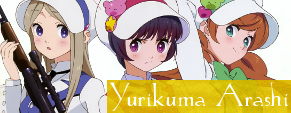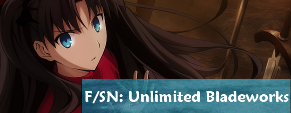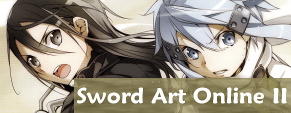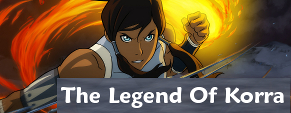Review-Roundup: Ao Haru Ride 01/02, Hanayamata 01/02
![[C12] Ao Haru Ride - 02.mp4 - 00006](https://otakuness.files.wordpress.com/2014/07/c12-ao-haru-ride-02-mp4-00006-e1405623475481.png?w=604) After all, everybody knows that a girl’s value rises and falls with how cute she is. That’s the ONLY way for girls to be worthy of any guy’s interest.
After all, everybody knows that a girl’s value rises and falls with how cute she is. That’s the ONLY way for girls to be worthy of any guy’s interest.
It’s great to be a male love-interest in a shoujo-series! Really, NOTHING is the guy’s fault, he just can be an asshole and look down on the women who are interested in him. After all, he’s way too cool and deep to stoop to a normal person’s sensibility for social interactions. It gets even better if the guy has a dark past. There’s no better way to be pretentious than to say “You just don’t get me.” while having this dark past lurking there in the background unmentioned. Being considered cool was never easier! That guy just has to wait for the female main-character to do all the plot-work for the romance to happen! So, here are the two series, I will cover this time:
Ao Haru Ride: A long time ago Futaba was a good, cute girl that was naturally hated by all girls but nowadays she’s an integral part of the girl-yakuza to escape that hatred. She even had a boyfriend-in-waiting once! Except that the guy stood her up and then disappeared into a jungle or wherever the fuck he was going. Enjoying her life as an unattractive girl-gorilla she suddenly meets her former boyfriend-but-not-exactly-that again. And he turned into a real sourpuss! But Futaba starts to question her descent into girl-barbarism as she rediscovers her feelings for the knight-in-shining-armor whose head got stuck in his own asshole.
Hanayamata: Naru is convinced that she sucks at being alive but she has good friends that she supports wholeheartedly. Getting closer to suicide with each meandering day, one night is about to change her life forever. While slavishly following someone else’s wishes again, she meets a weird girl who immediately decides to start dancing with Naru. Weirded out by the girl because she looked very UN-JAPANESE, Naru at first tries to distance herself from this newcomer. But this American girl called Hana convinces Naru to join her Yosakoi-club and for the first time in Naru’s life she feels like she has found something she can devote herself to. And with that her great friendship with Hana begins.
Ao Haru Ride 01/02 Review
![[C12] Ao Haru Ride - 02.mp4 - 00001](https://otakuness.files.wordpress.com/2014/07/c12-ao-haru-ride-02-mp4-00001-e1405625340962.png?w=604) The series portrays her as being immensely cute but… personally I found her ‘cute behavior’ to be more weird than actually cute. I mean, just look at this example: She’s eating LUNCH! Who the hell would call that a picnic?! People in costume-dramas have fucking picnics! Or how often is dinner called a fucking ‘banquet’ these days…?! It’s JUST lunch for fuck’s sake!
The series portrays her as being immensely cute but… personally I found her ‘cute behavior’ to be more weird than actually cute. I mean, just look at this example: She’s eating LUNCH! Who the hell would call that a picnic?! People in costume-dramas have fucking picnics! Or how often is dinner called a fucking ‘banquet’ these days…?! It’s JUST lunch for fuck’s sake!
Coming-Of-Age-stories in animes are usually very idealistic. The way animes often depict growing up it’s a struggle but it’s one that ultimately should lead to the teenager becoming a proper adult. Stuff like that you should follow your dreams, that you should be honest about your emotions or the hope that such things will pay off just by being pursued makes the process of growing up seem way fluffier than it has to be in real life. Themes like rebellion or existential confusion get oftentimes buried by the notion that growing up means just striving to become a good adult. On the other hand, this journey gets glorified as well in the way that striving to become a good person makes you a happier person as well. All the confusion, anger and mundane problems become just dramatized obstacles for this idealized version of growing-up. What should be the story in these cases becomes just a bunch of plot-devices.
And that’s where Ao Haru Ride offers an interesting plot-hook: It begins with a heroine who has changed. Change should be SO important to coming-of-age-stories and yet when most animes and mangas start, their teenage-characters are already these fully-realized beings that behave and think in a certain way. And there’s a nice sense of self-awareness and agency in the portrayal of Futaba’s decision to change but at the same time it’s naïve and short-sighted enough to be believable. It’s also nice how these decisions were motivated not only by her feelings but also by her environment. This dynamic creates depth as it sets up a difference between what she thinks and what she’s doing. Her characterization is definitely the highpoint of the series but sadly, this series isn’t about her.
Ao Haru Ride is a romance-series. The series’ biggest concern is to force its characters to come to terms with their romantic interests. The theme of change doesn’t translate into the characters moving on with their lives. Instead, Futaba and Kou are obsessed with their shared past. The former desperately clings to the past and wonders where it has gone and the latter goes out of its way break ties with the past. And while story-wise it’s imaginable for both to learn how to reasonably deal with this, the plot always creates confrontations between them.
And it could still be a story about change except that Kou’s behavior is SO dickish that he’s hardly likeable. Instead of just telling Futaba that he isn’t the same guy he was a few years ago, he also criticizes her lifestyle-choices and still feels responsible to be a part of her life. Like I said, this is also the plot somehow putting those two in the same spot for no fucking reason again and again but Kou’s behavior is paradoxical. In one moment he’s basically telling Futaba to leave him alone and in the next he feels the need to act like her protector.
The same applies to Futaba as well when it comes to this relationship. When Kou stood her up for whatever fucking reason she decided to change her image and lifestyle. And yet she’s all over Kou the minute he reappears in her life. Even when he bluntly tells her to fuck off by condescendingly picking an important spot of their shared past, she’s just desperate to change his mind. And that’s the basic dramatic conceit of this romance: She needs to heal whatever pain caused him to become a total jackass.
And the interesting thoughts about change and growing up that were used as a setup for the story just completely fall apart in the second episode. Because all of a sudden the series uses Kou as its voice to become very judgmental in regards to Futaba’s will to change. And then the series proceeds to prove him right. Whereas Futaba can only weakly complain about Kou while crying, Kou is allowed to drop story-relevant truthbombs on Futaba.
Under the guise of ‘being true to yourself’, this series seems to propose that judging girls by how much boys like them is bad but to be completely unlikeable for guys is even worse! What has Futaba’s will to become a different person got to do with who her friends are and how they behave towards her? The series is basically saying that by willfully becoming unattractive for boys, Futaba has fallen in with the “wrong crowd” of girldom. This series has pushed Futaba into a position of agency and then goes on to punish her for not being cute enough like she should be (since she’s a good girl). Also, the way Yuri gets ostracized for being cute and popular with the boys is simply absurd.
What Ao Haru Ride gets ride though is the tone of its story. It has these heightened emotions that make the mundane drama more meaningful and it gets the dramatic tone of Kou as the cool lead-guy right. Sadly, though, the plot and the story already go into directions where things become a bit forced and the flair of a scene becomes more important than its substance. And the latter becomes especially difficult once you start thinking about what this series wants to say about how a good girl behaves.
Episodes-Rating: 5.5/10
Hanayamata 01/02 Review
![[C12] Hanayamata - 02.mp4 - 00000](https://otakuness.files.wordpress.com/2014/07/c12-hanayamata-02-mp4-00000-e1405626073151.png?w=604) Sure, let’s compare the foreigner to an alien that scares people in Japan with her appearance.
Sure, let’s compare the foreigner to an alien that scares people in Japan with her appearance.
Has any teenager ever professed to be completely average? I mean, who thinks of themselves as average? That’s even worse than to think of yourself as a bad person and naturally it’s worse than to think of yourself as a good person. The average implies a lack of specialness but everybody will at least have one thing he or she considers to be her or his strength or talent, right? So, when these anime-protagonists love to start their introduction by focusing on how average they are, what they should do is to test for clinical depression in my opinion.
Naru is such a character but lucky for her, she’s the protagonist in a very fluffy series. It’s no coincidence that Naru is so interested in fairy-tales because the story has a bit of a magical undertone. There’s nothing outright supernatural going on but the way Naru meets Hana and how the latter is presented, there’s this feeling of things working out better than they should.
Hana is an American transfer student and her hyperenergetic behavior is what mostly drives the plot forward, as she immediately befriends Naru upon meeting her one night. But the series is always interested in trying to keep things cute so the hyperenergetic behavior of Hana isn’t based on some desire to control or to fulfill some vainglorious ambition. Instead, there’s an oblivious, honest desperation to her wanting to connect with other people and convince them to join her yosakoi-club.
So, on the one hand you have these hopeful scenarios that celebrate friendship. The whole yosakoi-thing is more of a plot-device that helps Naru to gain more self-confidence and realize that she’s a good person. And there are moments of drama to this process that are solved by these direct, sentimental outbursts. That’s how most emotional problems are solved thus far: A character will put her emotions into a short cheesy speech and then that character just shouts the whole thing basically. Whatever a character is feeling at the moment is bluntly stated and either starts drama or resolves it. And the characters blush, of course, a lot during these scenarios.
The all-girls-cast of this series may chase cuteness and moe-ness in many ways but the writing has a nice sense of self-awareness about this behavior. It doesn’t go so far as to become meta-commentary but the characters express this awareness by becoming self-conscious of their sentimental outbursts. When Naru and Hana meet in the second episode, they both deliver these overly-sentimental speeches confirming that they both understand each other and had always wanted to have the kind of friendship they have with each other. But then they fall silent and both start blushing feeling embarrassed about what they’ve just said. This sort of light meta-commentary is enough to make the characters more compelling since they don’t just display their abnormal character-quirks as if it’s the most normal thing in the world.
And the pacing also has that light sense of self-awareness as the second episode immediately starts to comment on how Naru has changed since she had met Hana. Using Yaya as the first character to be focused on helps the series to establish Naru as a character who isn’t simply “average at everything”. Also, that Yaya quickly becomes aware of her feelings and acts on those feelings gives this second episode a pleasant pacing.
The other big part of this series is a bit worrisome, though. Hanayamata relies on character-based comedy to fill the time between its more dramatic parts. I think, that without a compelling world or theme to draw from as a joke-well, it’s rather hard to come up with new jokes at some point. At this point, the series can still introduce new characters with their quirks and let the characters play off each other in the group. But for one, this is the kind of fluffy comedy where you’re supposed to laugh about a character’s behavior but not laugh AT them. And two, the jokes that were used in the first two episode did use a little bit too often repetition to sell the joke. So, who knows if Hanayamata can stay so pleasant throughout the entire season.
Also, on another note… The joke about Hana being “alien-like” is VERY xenophobic. I mean, this isn’t some joke about how weird the Western culture or any of its languages seem to a Japanese person, this was Naru basically judging Hana’s appearance to be alien-like. Also, to yet again portray a Westerner with blond hair and blue eyes is kinda weird as well… That’s a weird stereotype to use as stand-in for a person from America or Europe.
Episodes-Rating: 6.5/10
Posted on July 17, 2014, in Anime, Ao Haru Ride, Hanayamata, Reviews and tagged Anime, ao haru ride, アオハライド, ハナヤマタ, blue spring ride, hanayamata, reviews. Bookmark the permalink. Leave a comment.


















Leave a comment
Comments 0